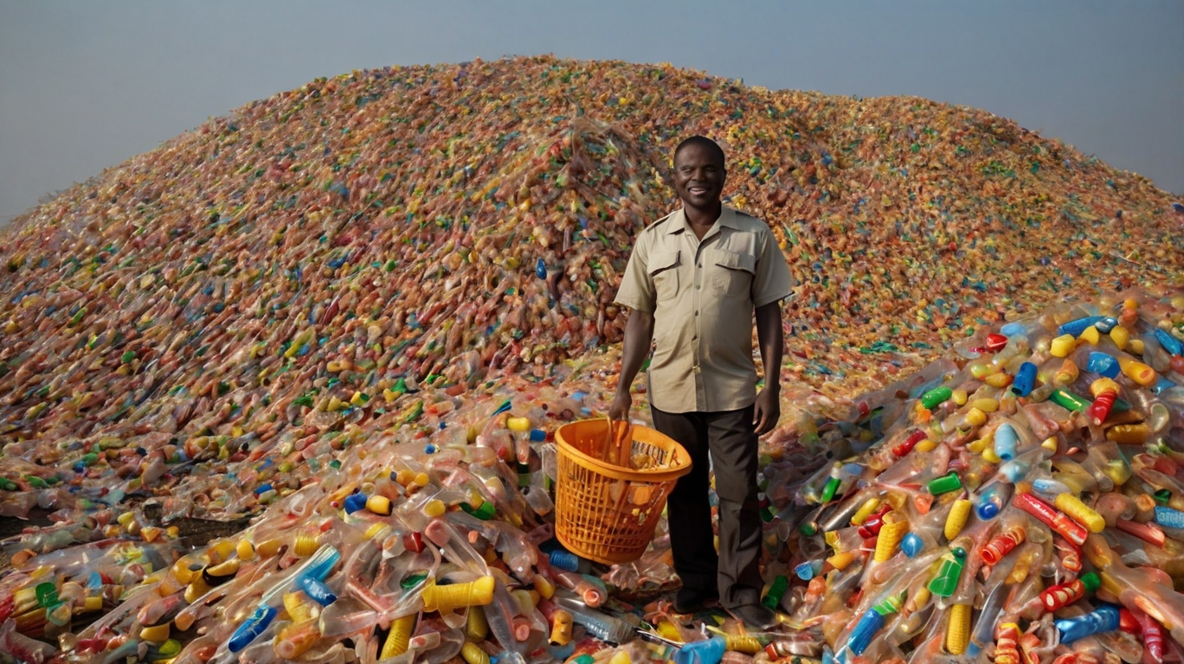The plastic market in Ghana is one of the fastest-growing sectors in the country, driven by the increasing demand for plastic products across various industries. As we enter 2024, the market is experiencing rapid changes and offers numerous opportunities for local manufacturers, businesses, and investors. This article explores the key trends, challenges, and growth prospects of the Ghana plastic market, providing a comprehensive overview of what to expect in 2024.
Key Drivers of the Plastic Market in Ghana
The growth of the plastic market in Ghana is primarily fueled by the rising demand for packaging materials. Plastics are essential in packaging food, beverages, consumer goods, and pharmaceuticals, making them indispensable in daily life. As Ghana continues to urbanize and modernize, more people are turning to packaged goods, which in turn increases the demand for plastic products. Additionally, the agricultural and construction sectors are also major contributors to the plastic market, as plastics are widely used in irrigation systems, pipes, fittings, and building materials.
E-commerce growth has also played a significant role in the rise of plastic products. As more consumers shop online, packaging materials like plastic containers, bubble wraps, and polybags have become essential for safe and secure delivery of goods. The convenience, affordability, and durability of plastic products have made them a preferred choice for many businesses.
Expanding Local Manufacturing Capabilities
In 2024, the Ghana plastic market is seeing increased participation from local manufacturers. Many companies are capitalizing on the demand for plastic products by setting up manufacturing plants across the country. This growth in local production has reduced Ghana’s reliance on imported plastic goods, making it easier to meet domestic demand at more affordable prices. Furthermore, local production helps create jobs, boost the economy, and contribute to the country’s overall industrialization efforts.
The expansion of the local manufacturing sector is also contributing to more competitive pricing and innovation. Manufacturers are investing in advanced technologies to improve product quality and efficiency, which further enhances their market presence.
Environmental Sustainability and Recycling Initiatives
As the plastic market grows, so do concerns about the environmental impact of plastic waste. Improper disposal of plastic products has led to pollution, particularly in urban areas and water bodies. In response, the government of Ghana, along with environmental organizations, has been implementing recycling initiatives aimed at reducing plastic waste and promoting sustainable practices.
In 2024, more emphasis is being placed on increasing plastic recycling efforts. Several recycling plants have been established to process used plastics and convert them into reusable materials. This not only reduces the amount of plastic waste in the environment but also creates new economic opportunities. Businesses that engage in recycling or produce eco-friendly alternatives to traditional plastic products are expected to gain a competitive edge in the market.
Government Policies and Market Regulation
The Ghanaian government has started to introduce policies aimed at reducing the negative environmental impact of plastics. Discussions around banning single-use plastics and encouraging biodegradable alternatives are gaining momentum. In 2024, businesses in the plastic market will need to align with these regulations to stay compliant and remain competitive.
These policies are expected to shape the future of the plastic market, pushing manufacturers to innovate and adopt more sustainable production methods. Companies that can adapt to these regulatory changes will be better positioned to thrive in a rapidly evolving market.
Fore More Info : - https://gmiresearch.com/report/ghana-plastic-market/
The Future of the Ghana Plastic Market
Looking ahead to 2024 and beyond, the plastic market in Ghana shows promising growth prospects. With increasing demand from various sectors, local manufacturing advancements, and growing recycling efforts, the market is poised for continued expansion. However, businesses will need to focus on innovation and sustainability to succeed in an increasingly competitive and environmentally-conscious market.
In conclusion, the Ghana plastic market is an exciting space to watch in 2024. As demand continues to rise and sustainability takes center stage, there will be ample opportunities for businesses to grow and contribute to the development of the industry.





Comments